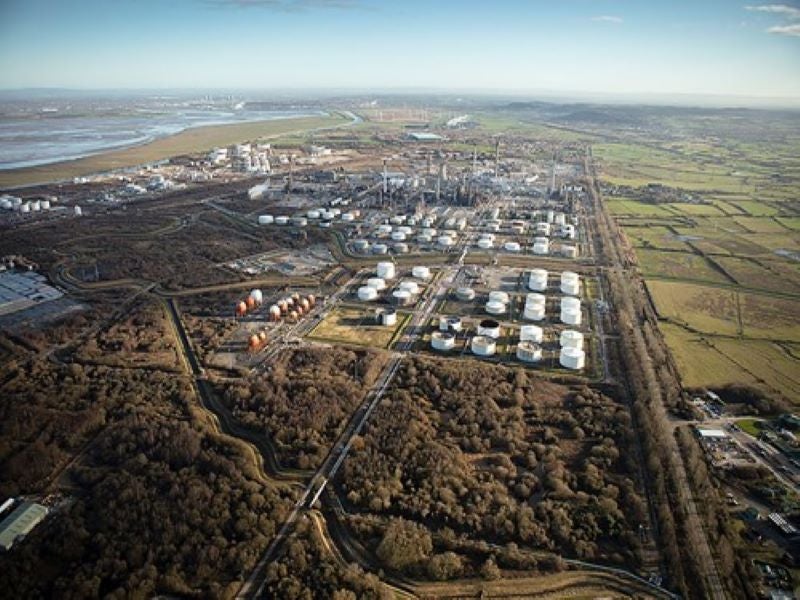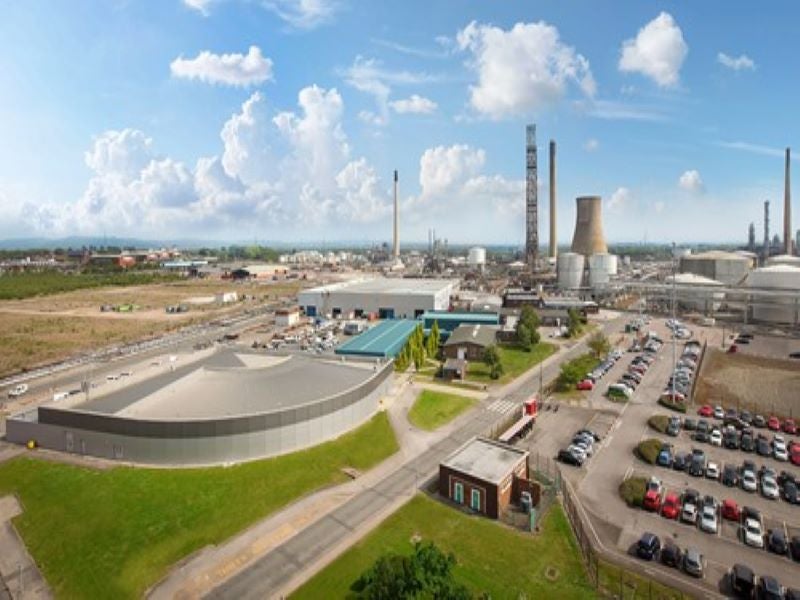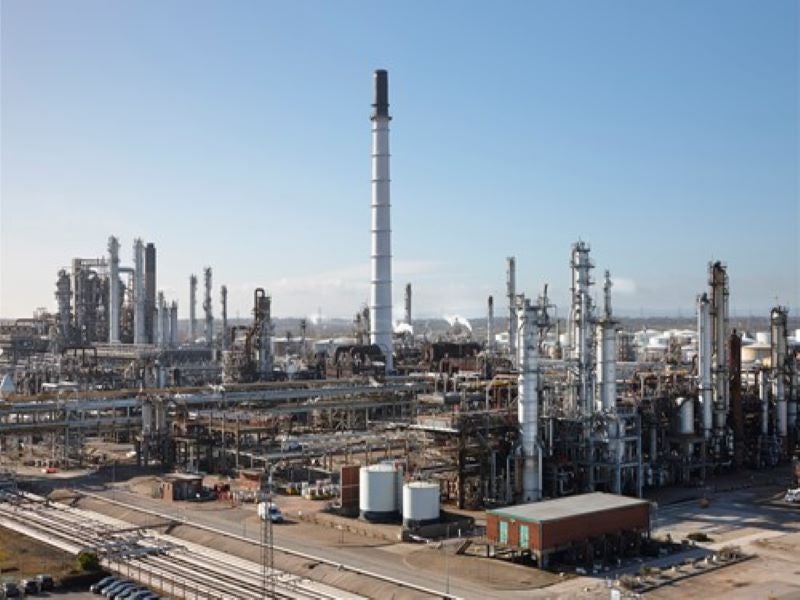The Stanlow refinery located in Cheshire is one of the biggest refineries in the UK. The refinery’s output meets approximately 16% of the country’s road transport fuels demand.
Owned and operated by Essar Oil (UK), the Stanlow refinery has the capacity to process up to 10 million tonnes (Mt) of crude oil a year.
Essar Oil (UK) acquired the refinery facility from Royal Dutch Shell in July 2011. It is planning to build the UK’s first low-carbon hydrogen production hub at the Stanlow refinery which is expected to commence operations in 2025.
Location and site details
The Stanlow refinery is located on a 770ha-site on the southern of the Mersey Estuary, near Ellesmere Port, Cheshire, UK.
Feedstock supply
The refinery receives the crude supply through a 24km-long pipeline from the Tranmere oil terminal situated near Mersey Estuary. The Tranmere oil terminal, with two berths, lies on the west side of the River Mersey, approximately 3km south of Birkenhead.
The refinery processes crude oil from North Sea, the Mediterranean, as well as West Africa. The refinery also supplies feedstock, including toluene, and ethylbenzene for the petrochemical companies.
Refinery processes and products
The refinery houses various processing modules, including the crude oil distillation, fluid catalytic cracking (FCC), catalytic reforming, hydrodesulphurisation, and the hydrotreating units.
The crude oil processing capacity of the refinery increased from 68 million to 75 million barrels a year, following the Project Tiger Cub and the refinery turnaround carried out in 2017-2018.
The Stanlow refinery produces approximately 4.4 billion (bn) litres of diesel, 3bn litres of petrol, and 2bn litres of jet fuel a year.
The refinery products are supplied to market through road, pipelines, and the Manchester Ship canal.
The propylene output of the refinery is supplied through a pipeline connected to LyondellBasell’s polypropylene facility at Carrington, UK.
Hydrogen production hub at Stanlow
Essar Oil (UK) and Progressive Energy entered into an agreement to build the UK’s first low-carbon hydrogen production hub at the Stanlow refinery in January 2021.Progressive Energy is the developer of HyNet North West, an industrial decarbonisation cluster in the UK.
The hydrogen produced at the facility will be utilised by the refinery as well as supplied across the HyNet region comprising North West England and North East Wales. The plan is to supply hydrogen to industries, buses, trains, heavy goods vehicles, as well as to heat homes.
Expected to commence operations in 2025, the initial capacity of the hydrogen hub will be three terawatt-hours (TWh) of hydrogen a year. The facility will utilise the carbon- capture technology to capture and store up to 600,000 tonnes (t) of CO2 a year.
Subsequently, another hydrogen production facility will be developed to produce 6TWh of hydrogen a year.
The total investment to build the two hydrogen production hubs will be approximately £750m ($1bn). Essar Oil UK and Progressive Energy will jointly develop the project.
Contractors involved
Johnson Matthey will provide Low Carbon Hydrogen (LCH™) technology for the project, while SNC-Lavalin is responsible for the engineering, procurement, construction, and commissioning of the hydrogen production facility.
Cadent is developing a new pipeline network for the distribution of hydrogen.
Financial support for the hydrogen projects
The Department for Business, Energy and Industrial Strategy (BEIS) of the UK Government sanctioned a total of £13m ($17m) for two hydrogen projects led by Progressive Energy in February 2020.
The first project is to build the low-carbon hydrogen plant at the Stanlow refinery. The second project involves live trials of hydrogen fuelling at Unilever’s manufacturing facility in Port Sunlight and at Pilkington’s Greengate Works glass-making plant in St Helens, as well as a front-end engineering design study for a 100% hydrogen-based combined heat and power plant at the Stanlow refinery.
The funds allocated for the first and second projects were £7.5m ($9.77m) and £5.2m ($6.77m) respectively.
The UK Government’s target is to produce 5GW of low-carbon hydrogen by 2030.





